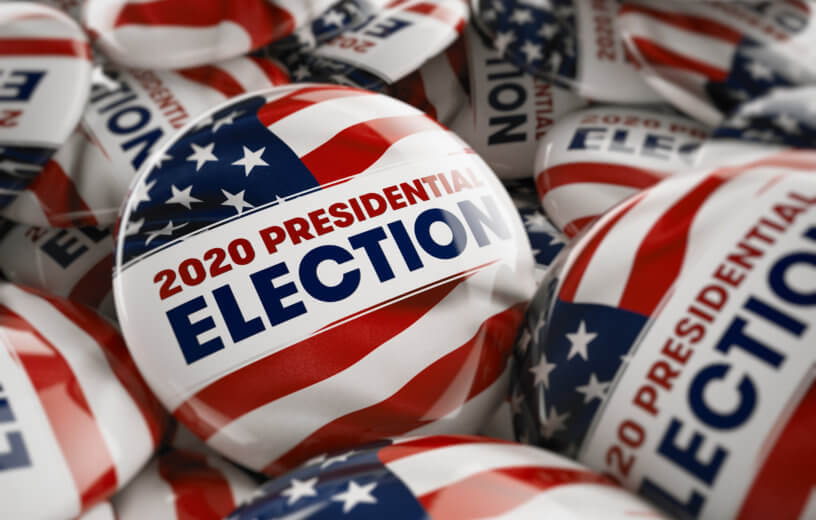Calling the findings “depressing,” the study’s author says voters “are willing to cherry pick which polls to trust” in order to “support the narrative they want to hear.”
ANN ARBOR, Mich. — The 2020 presidential election is less than a year away, and pollsters are already out in full force attempting to gauge voters’ preferences heading into next fall. The legitimacy of pre-election polling is often questioned by voters and pundits alike, and a new study finds that most people’s views on a particular poll’s credibility ultimately comes down to whether or not they like what they see.
Researchers from the University of Michigan and the University of Pennsylvania say that voters tend to find polls more credible when their preferred candidate is leading. The study also found that more clearly stating and visualizing a poll’s methodology may prove beneficial in mitigating voters’ initial biases.
“On a number of fronts, it is clear that people believe what they want to believe,” says Josh Pasek, associate professor of communication and media at U-M, in a media release. “It’s depressing, but not really surprising, that they are willing to cherry pick which polls to trust in ways that support the narrative they want to hear.”
Pasek adds that the study’s findings are a troubling indicator of just how polarized American politics have become, and subsequently how much harder it will be to ensure democratic legitimacy.
“When Republicans and Democrats have diverging expectations, it is likely that many people will be surprised by the result on Election Day,” he adds. “These sentiments can validate perceptions of fraud, where people think that their expectations were upended because their opponents must have done something illegitimate.”
According to study co-author Michael Traugott, a research professor at the Institute for Social Research, these findings are consistent with recent research that had found people considered polls regarding abortion or gun rights to be more legitimate if the results coincided with their own beliefs.
“The process of motivated reasoning, especially in our currently polarized environment, is complicating civil discourse about politics,” Traugott comments. “The evidence available through well-conducted polls is not subject to evaluations based on their methodological quality. Accuracy and credibility are assessed in terms of whether the results confirm preexisting attitudes and beliefs.”
The study’s conclusions are based off of an experiment held leading up to the 2016 presidential election intended to measure how partisan biases, poll results, and methodological quality influence how polls are received by the voting public.
A nationally representative group of over 900 participants filled out a series of online surveys on their thoughts after viewing a screenshot of a news article about two polls regarding Donald Trump and Hillary Clinton. Each participant was asked to rate the accuracy and credibility of the polls, and to predict the outcome of the election. However, the research team actually manipulated the two polls to show varying results, and changed one poll to appear of a higher quality than the other.
One of the experiment’s most interesting findings was how education appeared to play a major role in how people perceived the polls. Participants with a higher level of education were more likely to pick out the high quality poll correctly. Meanwhile, individuals with a lower level of education appeared to let their bias influence their perception more frequently, but this effect was mitigated when they encountered polls with more clearly stated methodology.
“Biased perceptions of polls can affect election turnout and voting preferences,” Kuru concludes.
The study is published in the International Journal of Public Opinion Research.
